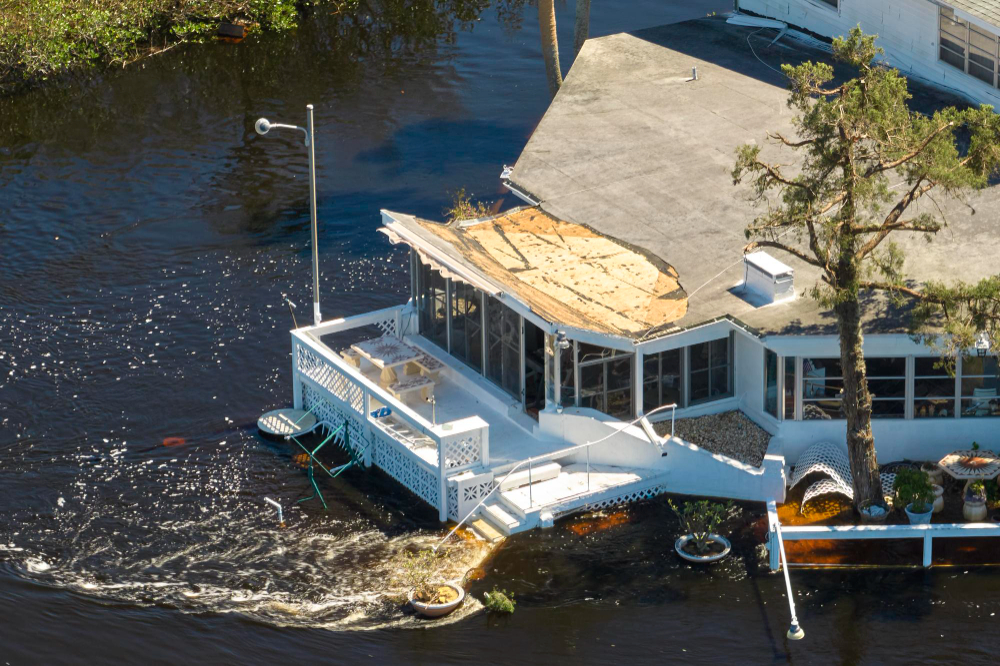When There is a Natural Disaster and No One Comes to Help
If there is one thing you can always count on, one day, Mother Nature will decide to unleash her wrath. Of course, sometimes it starts from something humans did, but whether it’s a wildfire, earthquake, flood, or even a tsunami, it might be hours, days, or even weeks, before things come together and help begins to arrive.
You can’t be prepared for everything. Most Californians have supplies stocked away at home in case of an earthquake, and bug-out bags ready to go for those devastating wildfires that tend to hit in the late summer, which is great, but what do you do if you are away from home or worse still, on vacation in another country?
You should have some plan in mind and be able to think clearly because it is entirely possible that no one is coming for you. At least not yet.
Let’s focus on 5 things you should be able to remember to do (assuming you aren’t badly injured) to keep yourself alive AFTER a natural disaster.
- Floods/Flash Floods
While these don’t happen often on the West coast, they are problematic in many other places. Flash floods tend to occur more in dry, desert areas, but they can occur nearly anywhere. If a flood happens near your home or work, and you have found a rooftop or the higher floor of a building, try to signal for help by spelling it out on whatever you have on hand- a sheet, clothing, or even chairs. Look for dry food, clean water, dry clothing and blankets. Never swim, walk, or drive through floodwaters. Stay in as safe and secure a location as you can find.
- Earthquakes
If you live in Southern California or the Bay area, chances are you will encounter an earthquake sooner rather than later. “The Big One” has been predicted for decades and it will happen eventually. When it does, one thing is certain; you are going to be on your own for an unspecified amount of time. If you are lucky, you are at home where you have supplies and can create a shelter. If you are not, this can be a difficult problem. The main things to do immediately afterwards are:
- Check yourself for injuries and stop any bleeding using pressure.
- Check others and your immediate family for injuries.
- Find or build a shelter. Buildings that are partially destroyed are not good places to seek shelter as aftershocks could topple them and trap you. Build a shelter out of whatever material you can find.
- Look for water, food, blankets, and other items you can use.
- Wildfires
If you live in an area that is prone to wildfires, always be alert for news about wildfires and where they are spreading. If you are ordered to evacuate, don’t wait! Wildfires can change direction in a moment. If you should find your neighborhood engulfed in flames, get out immediately! If you find that you cannot flee in your car, find a neighborhood swimming pool. Stay submerged, leaving only your nose or mouth to breathe. Do not try to leave or check on your house until all flames are out and the smoke has cleared.
- Tsunami
While tsunamis are rare in the US, you might be abroad when one strikes. If you have survived the tsunami, be prepared to take care of you and your loved ones for at least a week. Search for water, packaged food that hasn’t touched the water, and any dry clothing or blankets that you can find. Cell phones and landline phones may be out of service for a time but keep trying. Only use phones for an emergency. Find a shelter that appears to be sturdy.
- Storms (Including Hurricanes)
Large storms can be very dangerous, bringing heavy rainfall and damaging buildings and roads. Hurricanes can wreak as much damage as an earthquake. After the storm passes, be careful walking about as debris as the ground could contain nails or other sharp items. Find a room or some other shelter where you will be safe and out of the way of possible flooding. Collect blankets, clothing, shoes, food, and especially water. Turn off the gas to the building if there has been extensive damage to prevent an explosion.
The major take away from this is to find a safe shelter, look for water, food, clothing and blankets you can use for protection, stay as safe as possible.
